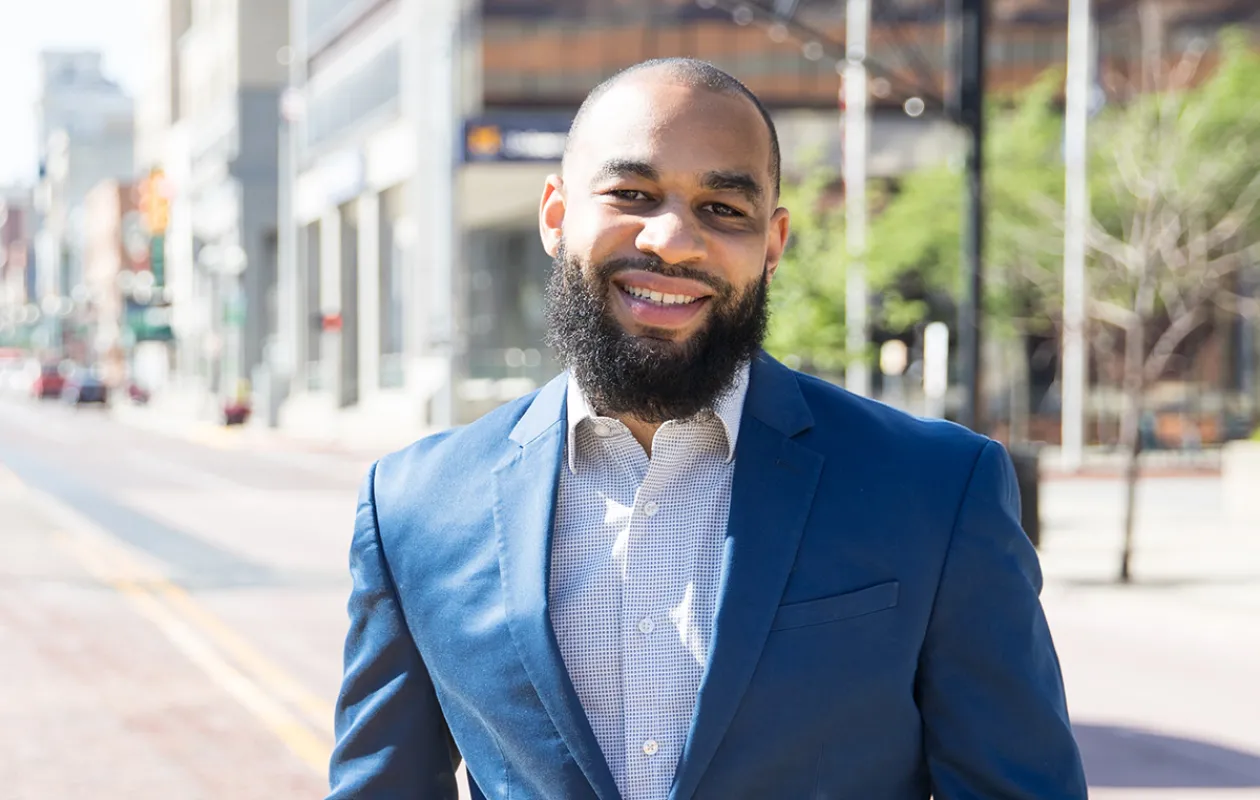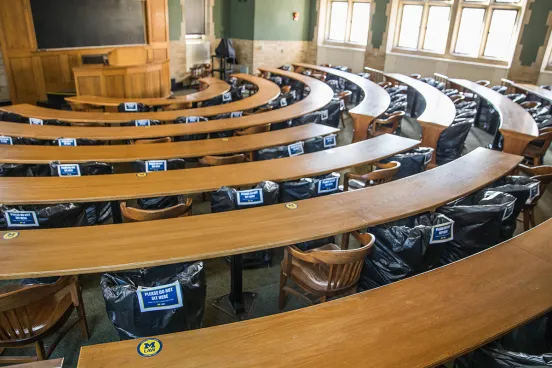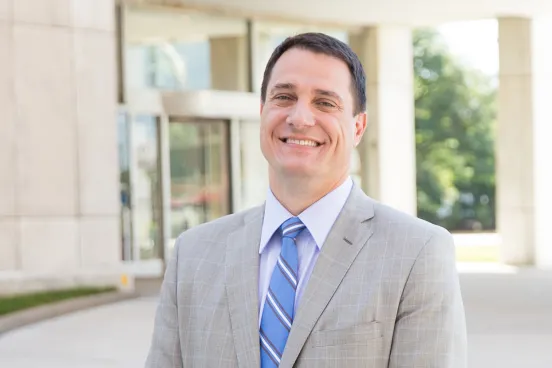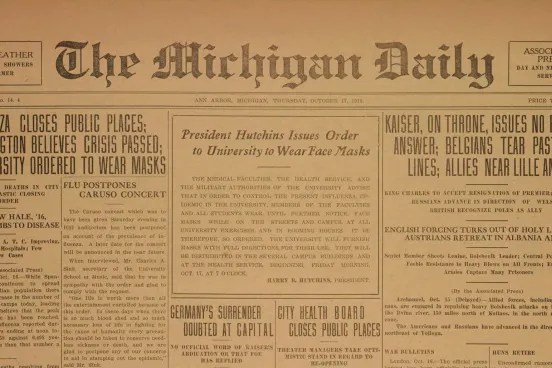Months before COVID-19 became a global pandemic, Chris Burtley, ’15, was called into the first of what would become a series of meetings about a novel coronavirus that was emerging in Wuhan, China, and beginning to threaten global supply chains.
“When a client asked me in January to join calls related to the coronavirus, we thought of it as a small project to keep an eye on, not something that would become the biggest issue we have seen in decades,” says Burtley. “It was a surreal experience to watch it go from a legal issue to something that ultimately impacted me and so many others personally.”
Two industries at the center of Burtley’s practice, automotive and manufacturing, were among the first affected by COVID-19, as lockdowns closed manufacturing facilities and disrupted travel and trade. Burtley focuses on supply chains at the Detroit office of Foley & Lardner LLP, working with clients to understand risk and opportunity related to how their businesses are integrated around the world. He views his role as helping clients make the necessary—and sometimes uncomfortable—changes to address emerging problems, especially now.
“It’s been a long time since we had a pandemic or large-scale war that shut down multiple regions simultaneously, and supply chains have thinned out to be very efficient and therefore cheap, but higher risk,” says Burtley. “Supply chains are strong in certain areas and very weak in others. The key is being flexible and creative, as the way we have done business for many years is probably not going to be the way business is done going forward.”
Burtley sees parallels between his practice and the challenges of the moment, when many of the biggest issues ahead are related to supply chain. “There are huge questions that remain about how we get through this, like how do we produce a vaccine so that we don’t have shortages? How do we direct companies to make medically necessary products? What should we do when markets fail? Solving these problems will push our limits and capabilities, but there’s a lot of innovation that can come from that too,” he says.
Outside of practice, Burtley retains close ties to his hometown of Flint, Michigan, and has been finding ways to use his legal and professional experience to support communities devastated by the pandemic. He recently joined the Greater Flint Coronavirus Taskforce on Racial Inequities, an initiative to study local outcomes and potential solutions related to the disproportionate impact of COVID-19 on minorities.
“Governor Whitmer created a taskforce on racial disparities across Michigan, and Flint decided to create a similar model that would report to the statewide group to get local input into the kinds of decisions that will be made,” says Burtley. “I found myself really wanting to do something, especially after my dad passed away, and I’m honored to serve my community by bringing some of my legal skills to the table and contributing to something meaningful.”
Burtley’s father, a prominent educator and community leader in Flint, where he served as the first African American superintendent of the public school system, passed away from COVID-19 in April. In his honor, Burtley has established the Dr. Nathel Burtley Leadership and Racial Equity Fund at the Community Foundation of Greater Flint to support Black students, marginalized groups, and local educational programing.
“When I was growing up, my father cared more about people and how I treated my classmates and teachers than he did about my grades, and that’s a lesson I took to heart from him and my mom,” says Burtley. “No matter what position you have or how far you progress, having that ability to relate to people is everything. And that’s something I apply in practice with everyone from administrative assistants to clients to whomever I come across in my life.







